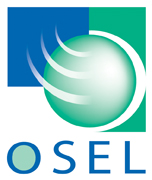Kashiwagi I, Morita R, Schichita T, Komai K, Saeki K, Matsumoto M, Takeda K, Nomura M, Hayashi A, Kanai T, Yoshimura A. Immunity. 2015 Jul 21;43(1):65-79. doi: 10.1016/j.immuni.2015.06.010. Epub 2015 Jun 30.
Synopsis: Colonization with a mixture of Clostridium species has been shown to induce accumulation of induced regulatory T (iTreg) cells in the colon. Transforming growth factor-β (TGF-β) is an essential factor for iTreg cell induction; however, the relationship between Clostridium species and TGF-β remains to be clarified. In this study it was demonstrated that a gram-positive bacterial strain, Clostridium butyricum Miyairi 588 (CBM588) promoted iTreg cell generation in the intestine through induction of TGF-β1 from lamina propria dendritic cells (LPDCs). CBM588-mediated TGF-β1 induction was mainly Toll-like receptor 2 (TLR2) dependent, and the ERK-AP-1 kinase pathway played an important role. In addition, the autocrine TGF-β-Smad3 transcription factor signal was necessary for robust TGF-β expression in DCs, whereas Smad2 negatively regulated TGF-β expression. Smad2-deficient DCs expressed higher concentrations of TGF-β and were tolerogenic for colitis models. This study revealed a novel mechanism of TGF-β induction by Clostridia through cooperation between TLR2-AP-1 and TGF-β-Smad signaling pathways.
